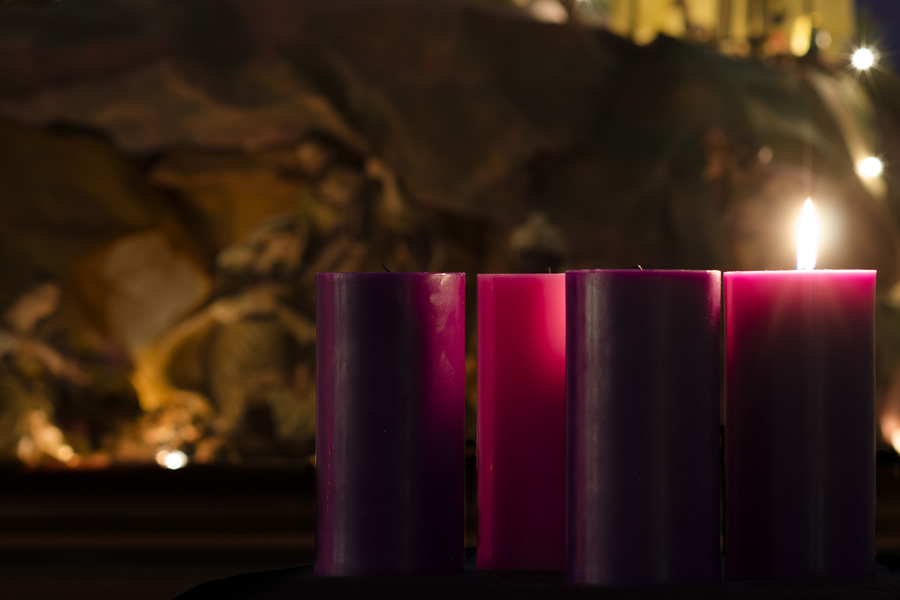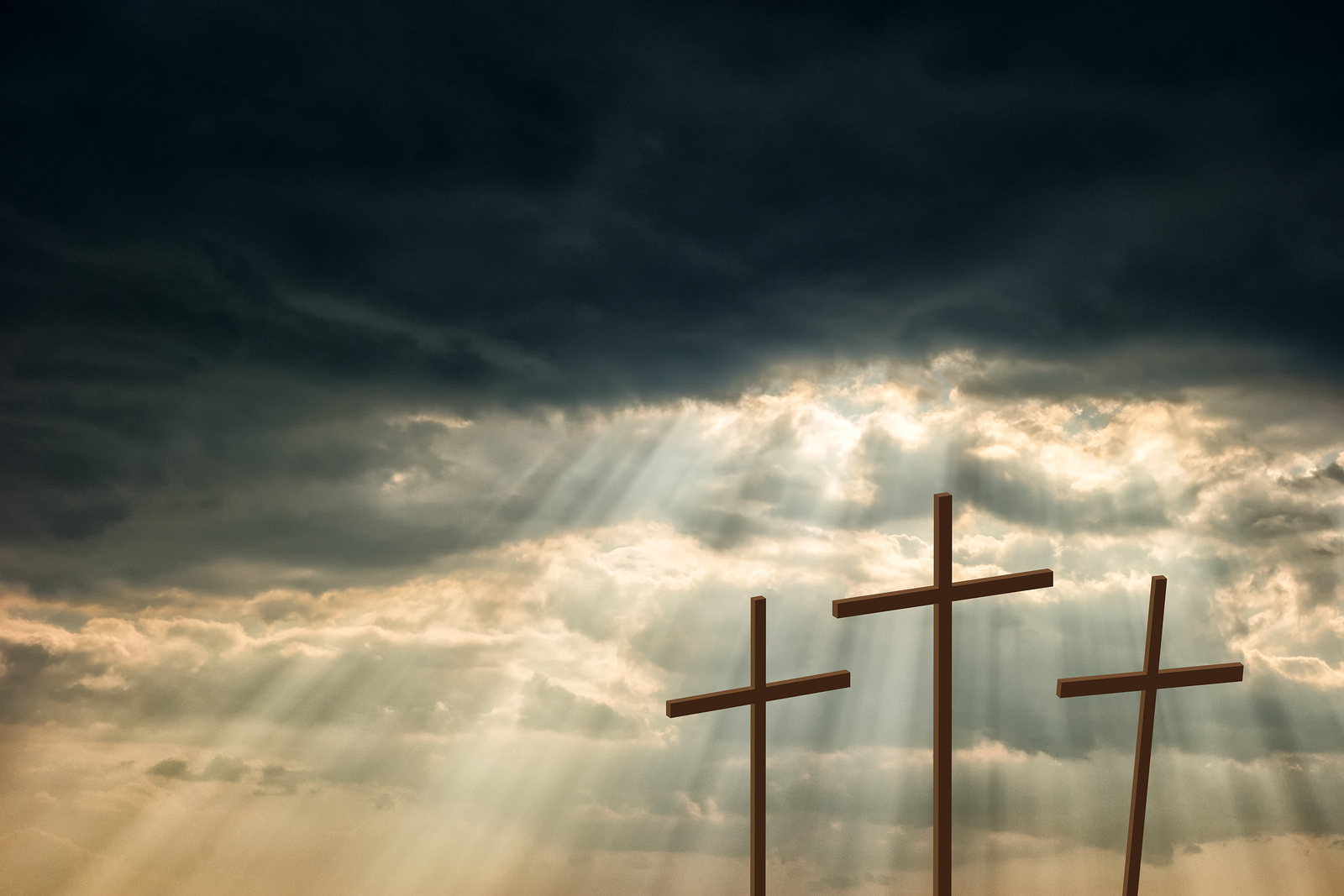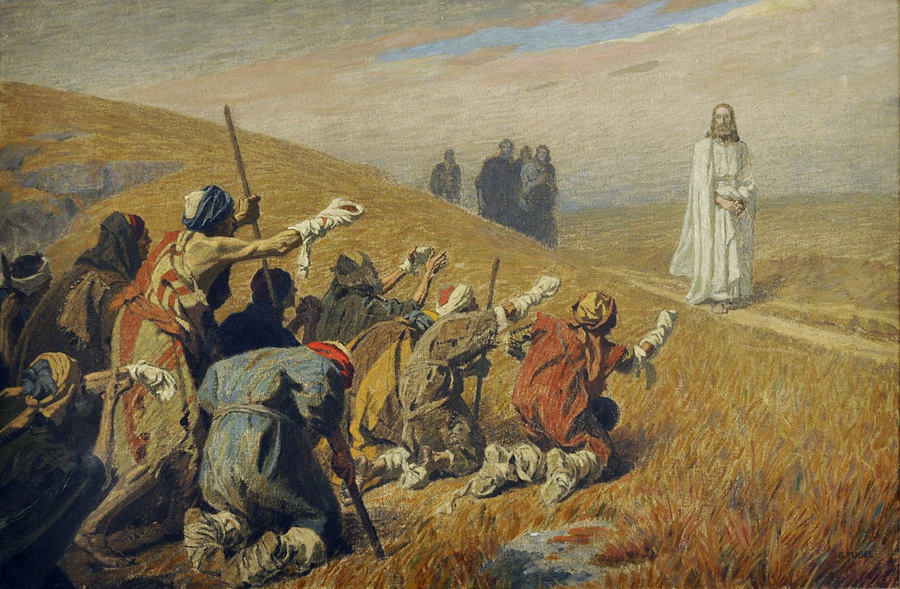
Welcome to the Season of Advent
11-27-2022Weekly ReflectionFr. Manasseh Iorchir, VCWelcome to the Season of Advent, the Season that begins the Liturgical Year of the Church and invites us to prepare ourselves for the coming of our Lord Jesus Christ. During this Season, the Church invites us to prepare for the commemoration of the historical birth of Jesus Christ which is marked with the solemn celebration of Christmas, and for the second coming which will take place at the end of time. This is why the theme of preparation runs through the readings of the First Sunday of Advent.
READ MORE
May Jesus Reign In Our Hearts
11-20-2022Weekly ReflectionFr. Manasseh Iorchir, VCWith the celebration of the Solemnity of Our Lord Jesus Christ, King of the Universe today, we shall bring to a close the Church’s Liturgical Year. When we come to Church next weekend, we will celebrate the First Sunday of Advent which serves the dual purpose of ushering us into the Advent Season and effectively begins a new Liturgical year, Year “A.” The Solemnity of Christ the King was instituted as a feast in the Liturgical calendar by Pope Pius XI in 1925, and in 1970 its observance was moved from October to the last Sunday of Ordinary Time and thus, the end of the Liturgical year.
READ MORE
By Your Perseverance You Will Secure Your Lives
11-13-2022Weekly ReflectionFr. Manasseh Iorchir, VCIt is the penultimate weekend of the Liturgical Year and we know the last few Sundays of every Liturgical year are dedicated to reflections on the four last things: Death, Resurrection, Judgement and Heaven/ Hell. Last weekend we were invited to reflect on the Resurrection and its implications. This weekend, the Readings suggest a solemn consideration of post-Resurrection Judgment.
READ MORE
Joy in the Hope of the Resurrection
11-06-2022Weekly ReflectionFr. Manasseh Iorchir, VCWe are gradually approaching the end of the Church’s Liturgical Year and so the Readings are beginning to tilt towards explaining the reality of the end of life on earth and what we should expect thereafter. This weekend we are expected to consider the concept of the Resurrection of the dead.
READ MORE
The Son of Man Has Come to Seek and Save What is Lost
10-30-2022Weekly ReflectionFr. Manasseh Iorchir, VCAt the time when Jesus walked the earth, tax collectors were not the most loved people in Israel. They were considered social oppressors, collaborators with the oppressive and dictatorial foreign Roman Government and so they were despised by the rest of the chosen people because they perfectly fit into the group categorized as “public Sinners.”’
READ MORE
I Have Finished the Race, I Have Kept the Faith
10-26-2022Weekly ReflectionFr. Manasseh Iorchir, VCThere are many who believe that other than Christ, St. Paul had the most significant influence on the Theology, Liturgy and life of the early Church. His description of his personal encounter with faith in Christ and his reaction to that encounter amidst great persecution and hardship shows why many believers hold him in such high regard.
READ MORE
...Israel Had the Better of the Fight
10-16-2022Weekly ReflectionFr. Manasseh Iorchir, VCOra et Labora, pray and work; this is the famous motto of St. Benedict, Patron Saint of our parish. This motto is providentially the theme of the Readings at the liturgy this weekend.
READ MORE
Where Are the Other Nine?
10-09-2022Weekly ReflectionFr. Manasseh Iorchir, VCThe First Reading and the Gospel passage this weekend can be placed side by side for our reflection, not only because both tell the story of the healing of lepers, but also because both focus on gratitude for God’s salvation and how it should be expressed.
READ MORE
Fan Into Flame
10-02-2022Weekly ReflectionFr. Manasseh Iorchir, VCThis weekend, the Readings from Holy Scripture invite us to reflect upon the theme of faith. We are presented with Israel’s faith experience at the time of the Prophet Habakkuk in the old covenant, and the faith to which we are called in the new dispensation.
READ MORE
They Have Moses and The Prophets, Let Them Listen to Them.
09-25-2022Weekly ReflectionFr. Manasseh Iorchir, VCWe often think of sin as the evil that we do, the uncharitable words that we say and the evil thoughts that we cultivate in our hearts. What we leave out most times is the good that is within our competence, which we know, yet fail to do. When we attempt an examination of conscience, the failings that readily come to mind are the things we did which our good conscience rightly judges as inconsistent with Divine precepts and so, offensive to His Holy will and to our neighbor.
READ MORE
You Cannot Serve God and Mammon
09-18-2022Weekly ReflectionFr. Manasseh Iorchir, VCThe Readings this weekend prescribe for us the right attitude a Christian should have towards the acquisition of, and the disbursement of, wealth. The Prophet Amos, one of the champions of social justice in the Old Testament, offers a descriptive rendition of prevailing dishonest, arrogant and oppressive attitudes of the wealthy towards the needy.
READ MORE
Rejoice With Me Because I Have Found My Lost Sheep
09-11-2022Weekly ReflectionFr. Manasseh Iorchir, VCThe world and time we live in makes a sincere practice of our Christian faith very difficult. We are surrounded by standards and ideas that facilitate easy fall into idolatry. The idols of our time include (but are not limited to) money, intellect, power, connections, family, the state, false religion, and even self. Whatever we are quick to ascribe our successes and accomplishments to, whatever we cannot do without, whatever we prioritize above everything else, is a candidate for the replacement of God in our lives.
READ MORE
A Reflection by Fr. Manasseh
09-04-2022Weekly ReflectionFr. Manasseh Iorchir, VCTwo Sundays ago, we heard Jesus admonishing His followers to enter the Kingdom of God through the narrow gate. By this, Jesus revealed that only the difficult and costly way of discipline can lead to eternal bliss. In the Gospel passage this weekend, Jesus teaches on the cost of discipleship, that is, what one would necessarily need to forego in order to successfully navigate life under the banner and standard of Jesus.
READ MORE